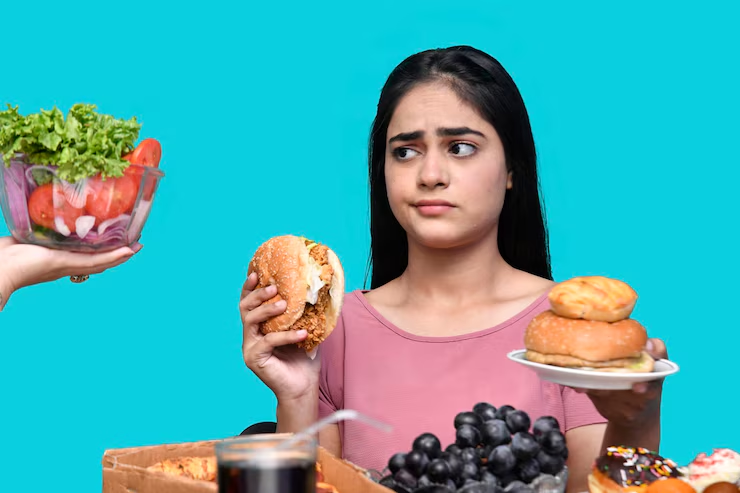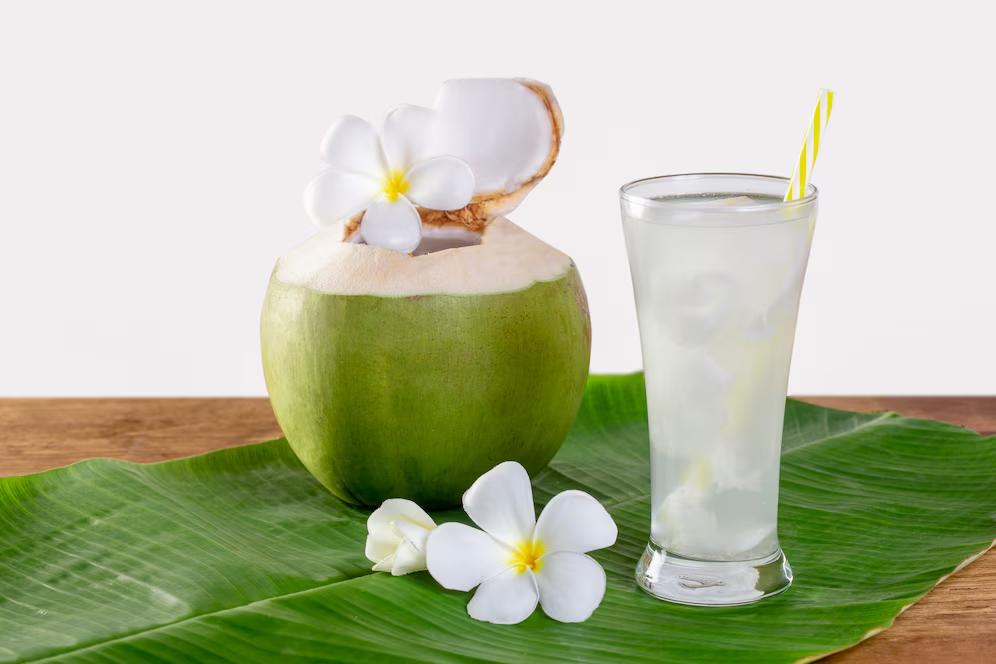Contents
- 1 Your Plate Listens When Your Skin Talks
- 1.1 Too Much Sugar: It’s Not Just a Sweet Treat
- 1.2 Dairy: The Creamy Bad Guy
- 1.3 Fried and Greasy Foods Are Tasty but Hard to Deal With
- 1.4 White Bread and Refined Flour: Sneaky Skin Killers
- 1.5 Not-So-Pretty Proteins in Processed Meats
- 1.6 Too Much Coffee and Caffeinated Energy Drinks
- 1.7 Chocolates: Bad News for People Who Want Sweet Things
- 1.8 FAQs About Foods and Skin That Is Prone to Acne
- 1.9 Q1: Do fruits help get rid of acne?
- 1.10 Q2: Is it always bad for your skin to drink milk?
- 1.11 Q3: Do spicy foods make acne worse?
- 1.12 Q4: Does drinking water really make your skin look better?
- 1.13 Q5: If I have acne-prone skin, what oils are safe to use in cooking?
- 1.14 Q6: If I have pimples, can I eat nuts?
- 1.15 Q7: Will changing to a plant-based diet help my skin?
- 1.16 Related Articles
Your Plate Listens When Your Skin Talks
Sometimes it’s not the cream you put on your skin that makes it bad; it’s the chips on your plate. What you eat can have a big effect on how fair, clear, and glowing your skin is. Skincare products can help from the outside, but real change happens from the inside out. The good news is? You don’t have to give up everything you love; you just need to change how much and how often you eat some things. Let’s look at the foods that might be bad for your skin instead of good.
Too Much Sugar: It’s Not Just a Sweet Treat
Sugar is everywhere, even in the “harmless” biscuit you had with your tea. But sugar raises your insulin levels, which can cause more oil to be made and breakouts.
How Much to Watch
Don’t eat more than 25 grammes of added sugar a day, which is about 6 teaspoons. It might not seem like much, but a single cola can has more than that.
Tip for Getting Ready
Instead of sugar, use 1/2 teaspoon of raw honey in your tea. You could also just drink herbal teas that are not sweet. Instead of white sugar, use mashed banana or 1/4 cup of applesauce to naturally sweeten your baked goods.
Dairy: The Creamy Bad Guy
Hormone levels can be affected by dairy products like milk, cheese, and ice cream. Some people get breakouts, especially around the chin and jawline, after eating dairy every day.
How Much to Cut
To see how your skin reacts, try only drinking one cup of dairy milk a day or not drinking any at all for two to three weeks.
Tip for Getting Ready
Choose almond or oat milk. Blend ½ cup of soaked cashews with water and 2 garlic cloves to make it creamy. This is a rich substitute for sauces or pasta.
Fried and Greasy Foods Are Tasty but Hard to Deal With
Deep-fried snacks are full of unhealthy oils that make your skin more oily and inflamed. They might taste good, but they aren’t good for your skin.
Warning About the Size
Only eat fried snacks once a week, and each serving should be less than 150 grammes.
Tip for Getting Ready
Instead, use an air fryer to cook your favourite foods. For instance, cut two medium potatoes into wedges, drizzle them with 1 teaspoon of olive oil, sprinkle them with salt and paprika, and bake them for 25 minutes to get crispy, skin-friendly wedges.
White Bread and Refined Flour: Sneaky Skin Killers
Refined flour has little fibre and quickly raises blood sugar levels. It can cause inflammation and make acne worse, just like sugar.
Max per Day
Don’t eat more than two slices of white bread or one bowl of refined pasta every day. Whole grains are a safer choice.
Tip for Getting Ready
To make your rotis or pancakes, mix together 1 ripe banana, 1 egg, and ½ cup of whole wheat flour. Not only will you feel better about your skin, but you’ll also enjoy the taste more.
Not-So-Pretty Proteins in Processed Meats
Cold cuts, sausages, and salamis often have preservatives, sodium, and artificial additives that can make your skin dull and cause breakouts.
Amount That Is Safe
Don’t eat more than 50 grammes a week. That’s about the same as two slices of salami or a small sausage.
Tip for Getting Ready
You can grill fresh chicken or paneer at home with 1 tsp of lemon juice, salt, and black pepper. It’s easy, tastes good, and is much better for your skin.
Too Much Coffee and Caffeinated Energy Drinks
Too much caffeine can make you dehydrated and raise your cortisol levels. That means your skin is stressed out and you might get more pimples.
Limit
You should only have two cups of coffee or one small energy drink (250 ml) a day.
Tip for Getting Ready
You could switch to green tea or make your own hibiscus iced tea by mixing 1 teaspoon of dried petals and 1 teaspoon of honey. Chill out and drink it all day for a refreshing change.
Chocolates: Bad News for People Who Want Sweet Things
Milk chocolate is full of dairy and sugar, which are bad for acne. It tastes good, but it makes your skin feel bad.
Limit per Week
Don’t eat more than 30 grammes (about two small squares) of milk chocolate in a week.
Tip for Getting Ready
Pick dark chocolate with at least 70% cocoa and only eat one square a day. Or, for a creamy, guilt-free dessert, melt 1 tbsp of cocoa powder with 1 mashed banana and put it in the fridge.
FAQs About Foods and Skin That Is Prone to Acne
Q1: Do fruits help get rid of acne?
Yes! Berries, oranges, papaya, and guava are all full of antioxidants. A medium bowl of this every day can help your skin heal and glow.
Q2: Is it always bad for your skin to drink milk?
Not for everyone, but if you’re sensitive, not drinking milk for 2–3 weeks could help your skin a lot.
Q3: Do spicy foods make acne worse?
It’s possible. Some people may get breakouts after eating spicy food because it raises body temperature and inflammation. Try cutting back on spicy foods for a few days to see if it works.
Q4: Does drinking water really make your skin look better?
Yes, for sure. Drinking enough water helps your body get rid of toxins. For soft, glowing skin, drink 8 to 10 glasses of water a day.
Q5: If I have acne-prone skin, what oils are safe to use in cooking?
For each meal, use 1 teaspoon of avocado, coconut, or olive oil. Don’t use oils that have been used before or hydrogenated.
Q6: If I have pimples, can I eat nuts?
Of course, but don’t go overboard. It’s fine to eat 15 to 20 grammes of almonds or walnuts a day.
Q7: Will changing to a plant-based diet help my skin?
It can help. Less animal fat and more plant nutrients help with inflammation. You can see a difference even if you only eat plants three or four days a week.
Find out more:
Disclaimer: This article is only for informational purposes and should not be taken as medical advice. If you already have skin or health problems, you should always talk to a dermatologist or other qualified healthcare provider before making big changes to your diet.





